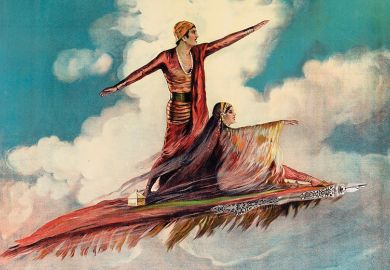William C. Carter's biography of Marcel Proust is undoubtedly an ambitious and formidable undertaking. The length and weight of the book, at over 900 pages, is as daunting as its subject. The reader is faced with as much material as he or she could ever digest about Third Republic French aristocratic life, the Dreyfus Affair, Marcel's bowel movements, the cycle of dependency in which he and his mother were gripped, and the desperate struggle to write and publish A la Recherche du Temps Perdu .
The big question mark hanging over a biographical enterprise about Proust in the 21st century, however, is "why produce another?". There are several problems here, all linked. First off, should the biographer be a judge? Proust argued passionately that we cannot explain the work of an author by knowing about his life. The classic riposte - and justification for biography - is that an author's work should be analysed and re-situated in relation to the political and cultural climate in which it took shape, and this means submitting literary texts and their originators to potentially unsympathetic yardsticks. In Proust's case, it boils down to whether or not his prose is affected by the hearsay account that, in his later years, he needed to set starving rats on each other in male brothels in order to achieve orgasm. In other respects he was a committed Dreyfusard, a charming companion to the upper classes, a devoted son and a wealthy invalid, who just happened to write brilliant psychological and moral analysis with acute wit and unsurpassed dexterity in the French language. The rats and the dexterity are probably two sides of the same hypersensitivity.
The second problem: should the biographer be completist? Proust spent most of his life, apparently, being either sick or a sycophant. The rest he spent writing - reviews, parodies, letters, literary criticism, translation, A la Recherche . This leaves biographers vast amounts of documentation, most of it carefully archived by the Biblioth que Nationale in Paris. Proust himself was a brilliant synthesiser, as well as marshaller of minutiae, but the extent to which a biographer may leave out or compress another's life is a very difficult question. It is one that Carter answers by including something to stand for almost every day of Proust's life.
If these two issues are general, the third is highly particular. A good scholarly version of Proust's life already exists. In 1996, Jean-Yves Tadié, a world-renowned Proust expert and chief editor of the prestigious Pleiade edition of A la Recherche , brought out Marcel Proust in France, recently also translated into English. Tadié's biography is footnoted extensively as one of the sources of Carter's work but while he thanks various Proust specialists who have become his friends, no prefacing acknowledgement is given to Tadié. Part of the credibility of Carter's work is thus lost since he cannot claim to be constructing the work from his own primary research.
He, in fact, situates his achievement slightly differently. His stated enterprise is to give "for the first time in English a detailed portrait of Proust's life and his odyssey as a writer in search of his vocation". Carter draws on the 21-volume correspondence edited by Philip Kolb, Proust's notebooks, kept in the Biblioth que Nationale, and the new editions of A la Recherche that have become available since George D. Painter's biography was published in 1959 and 1965. For a long time an undisputed authority, Painter went out of fashion with the rise of postmodernism because he equated Proust's life almost wholly with his work, explaining and justifying one by the other. The capital importance of Proust's sexuality, however, was treated euphemistically, and was underplayed by Painter. This euphemism has itself come under pressure, as the relationship between human sexuality and intellectual endeavour has come in for greater tolerance and increased scrutiny in the western cultural context. Accordingly, we might expect Carter's biography to dwell more openly on Proust's complex sexuality, and it does. Carter has chosen the warts-and-all way of approaching biography, and so has handled the issues of critique and thorough-going inclusiveness less by doing more primary research than by supplementing the existing material. He puts his own contribution forward as tolerant observation rather than as a moralising verdict on Proust's life. The result, however, is less an explanation than a homogenisation of complexity.
This is a serious objection, since Carter is clearly a solid and reliable scholar. And he has, to be fair, structured the biography very reasonably. It is in seven parts that date and label the well-known trajectory of Proust's life. We are taken through the antechambers of Proust's development, all that preceded and turned into the great novel for which he is known. From his nervous childhood, we follow him through his self-reinventions as social climber and frustrated man of letters. Then we watch his apprenticeship with the translation of Ruskin, and his attack on Charles-Augustin Sainte-Beuve, which served as a dialectical opposition enabling him to begin the great work of transformation. Finally we witness the struggle to write A la Recherche du Temps Perdu in the face of the first world war and his own failing health.
All of this is fine, and newcomers to Proust's life will learn a lot. However, Tadié's biography is already the more scholarly alternative, one that students might want to buy as a reference work. In Carter's text, the reader is left with the impression that an enormous mass of information has simply been laid end to end. The tricky task of absorbing the contents page headlines into the overall orchestration of the biography, to give it contour, is here submerged by the sheer quantity of material gathered. Because of this, it becomes harder to see where Carter is aiming the book. He seems to want the glory of a definitive account. He equally seems to want the laurels of the populariser, but in that case has not shaped the material to open it more fully to his intended audience. As a result, it is neither fish nor fowl, neither a scholarly reference edition, nor a jolly good read about this most difficult of men.
To my mind the facts of Proust's life hardly bear the telling and could be narrated with half the material given here, or with appendices for the truly curious. The really important thing about giving us a revised account of Proust's life in the early 21st century is that Proust's pampered, privileged circumstances are now available to far more people. The urgency of examining the ideology sustaining individualism under conditions of relatively generalised wealth and leisure in the West has never been so apparent. This is not so that we can smugly mourn a lost belle epoque - good riddance to it - but so that we can take the temperature of our own lost sense of community and ethical fragility. I was hoping for such an investigation in Carter's work. As things stand, this is a creditable account of Proust's life, but it could have done more to unsettle the fixed images we already have of the man, and ourselves.
Ingrid Wassenaar is a fellow of Christ's College, Cambridge.
Marcel Proust: A Life
Author - William C. Carter
ISBN - 0 300 08145 6 and 09400 0
Publisher - Yale University Press
Price - £22.50 and £12.95
Pages - 946



